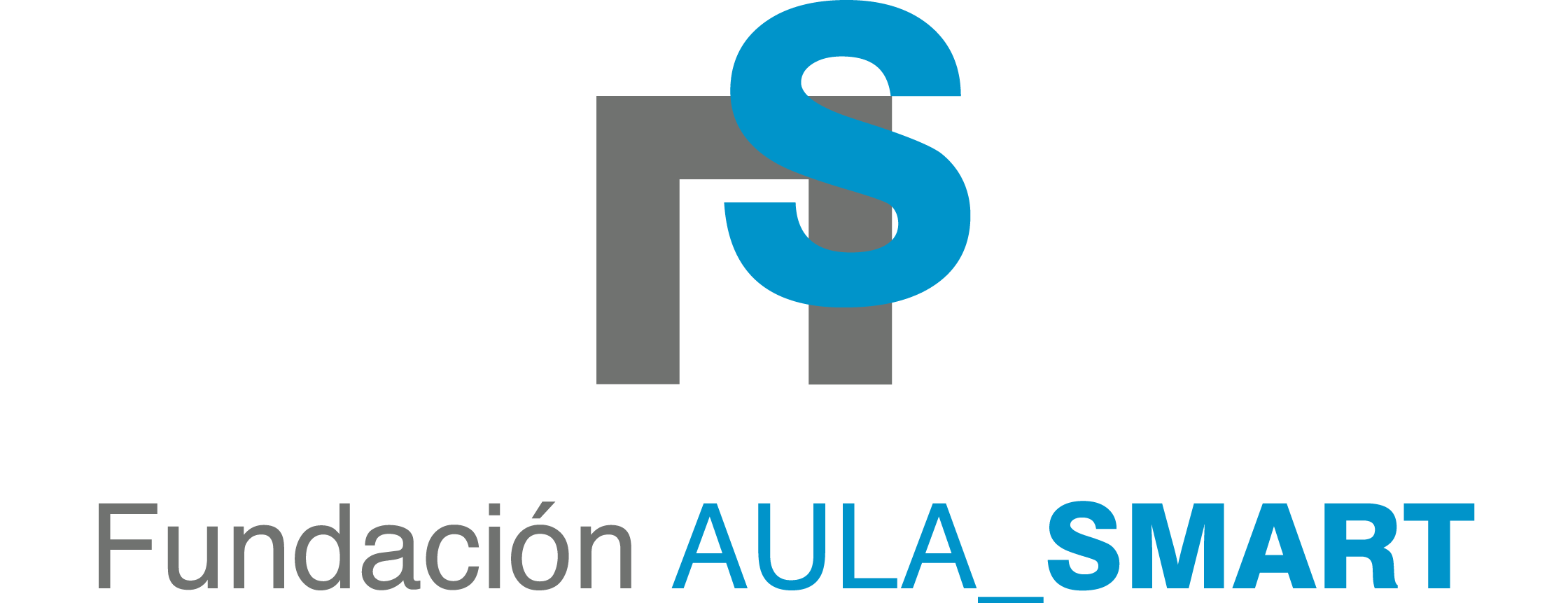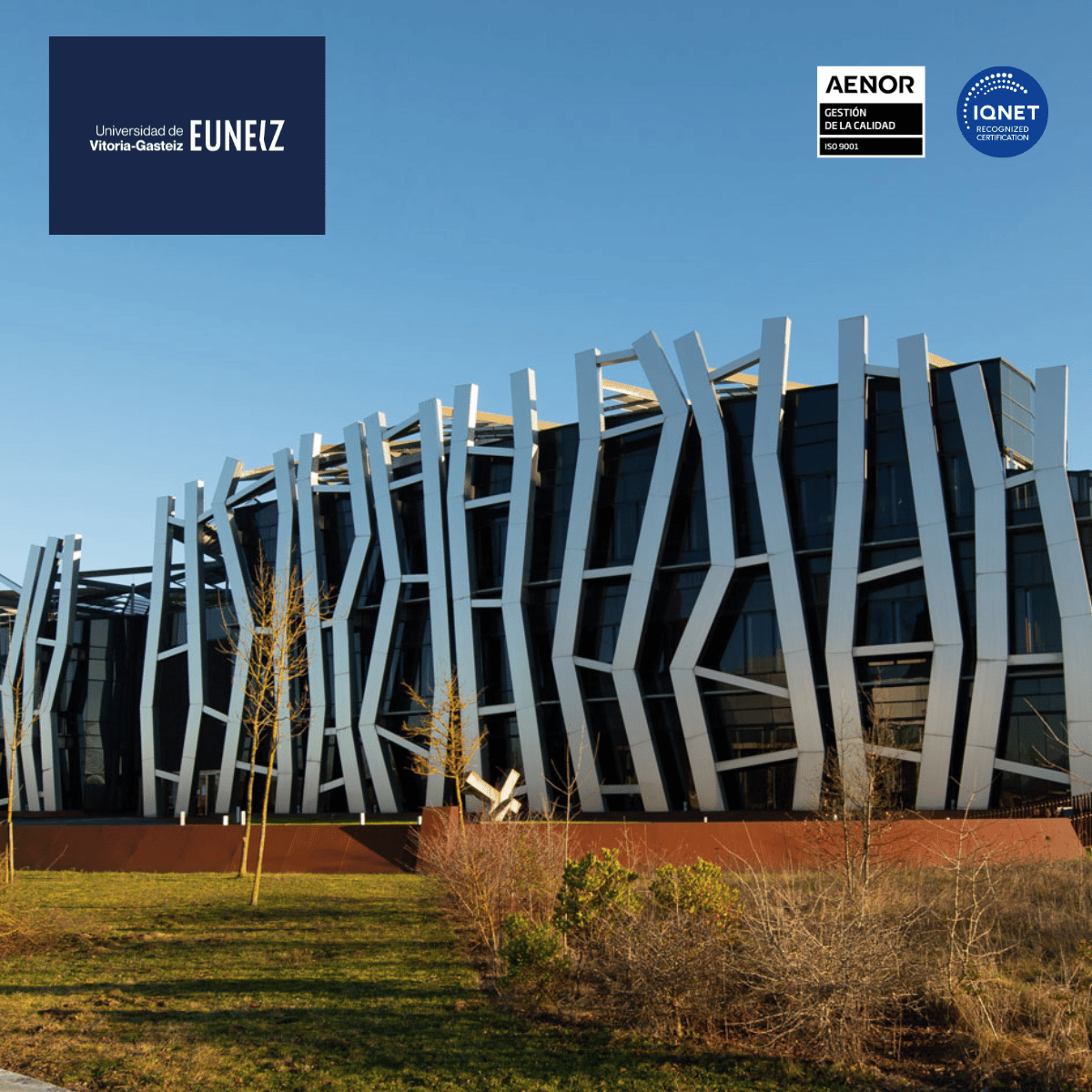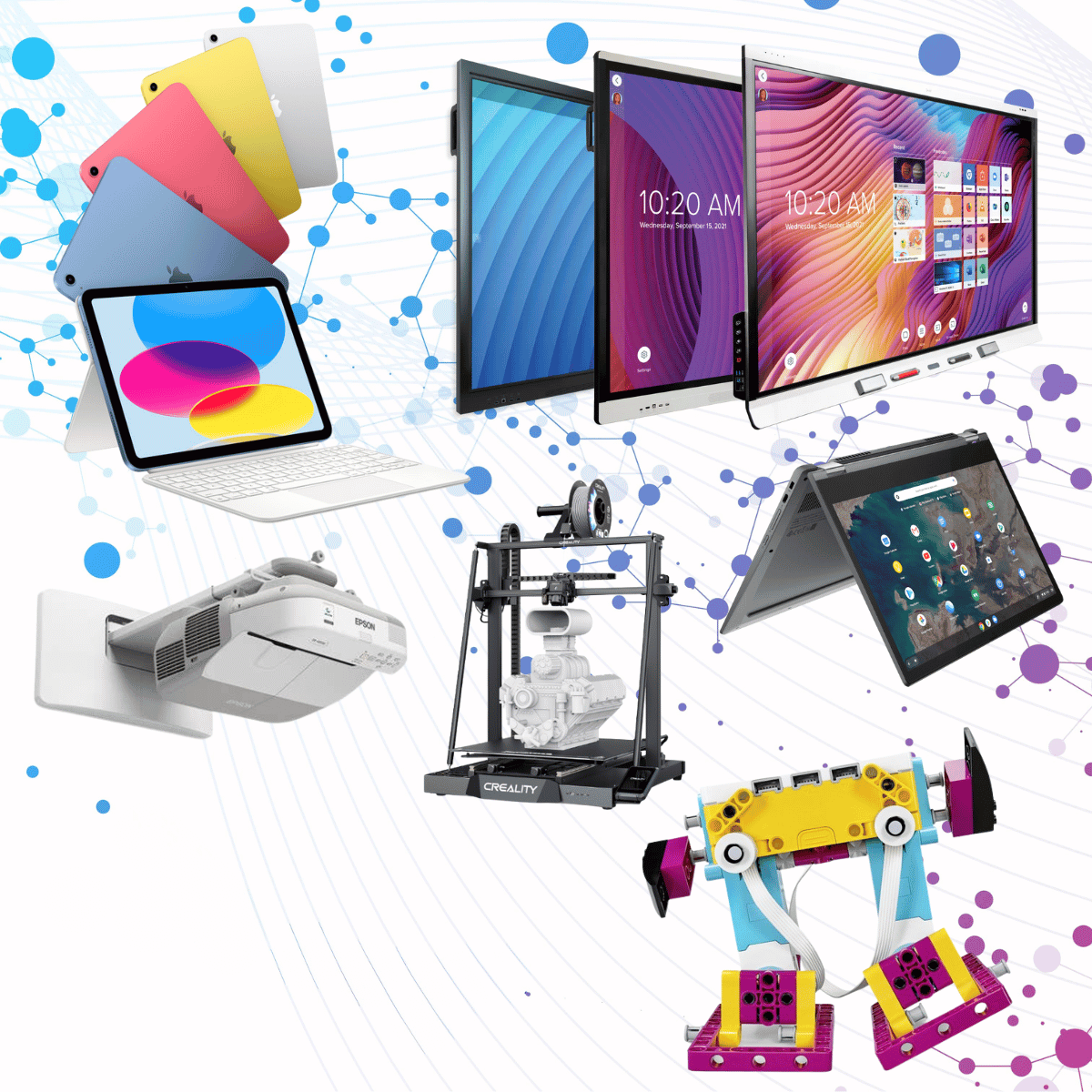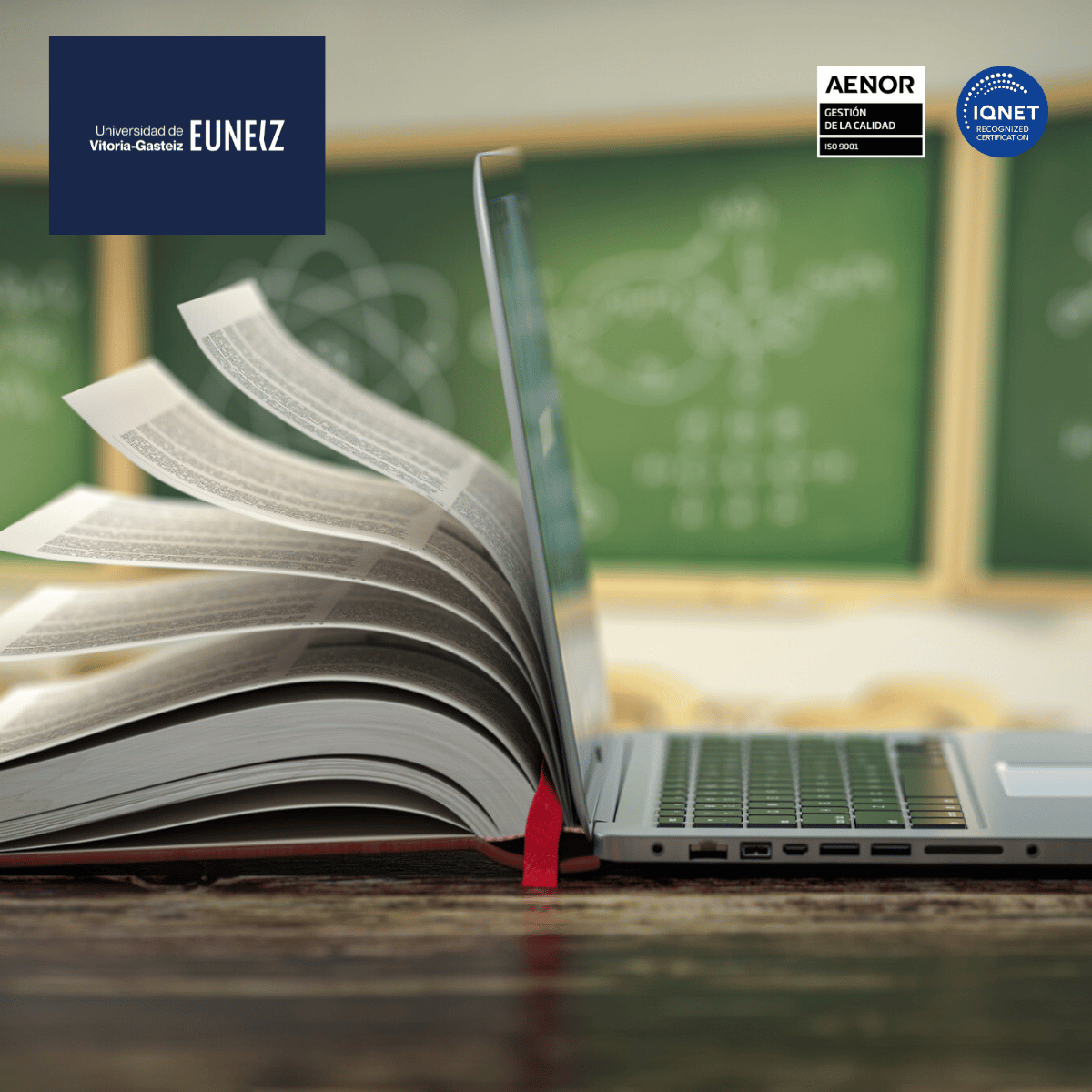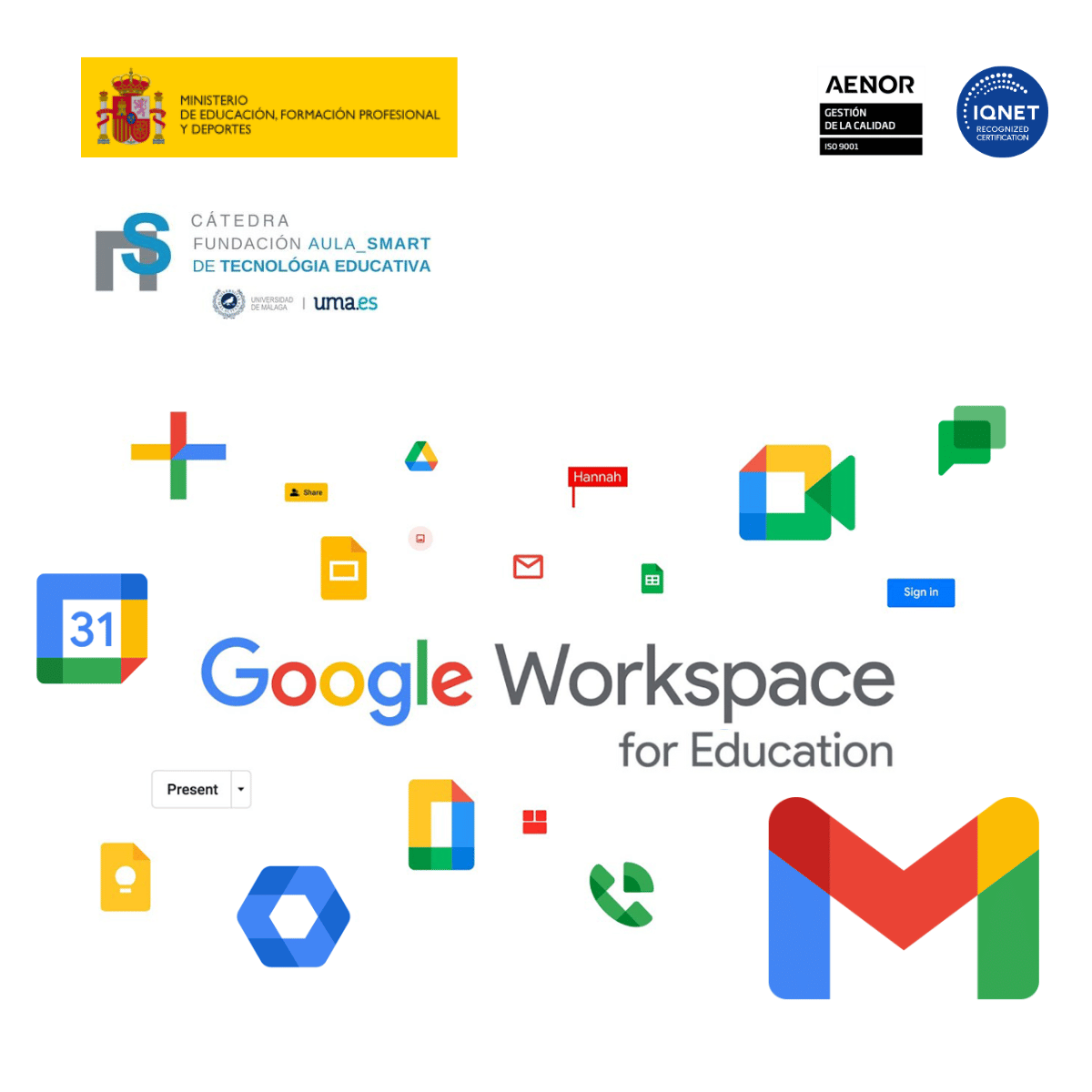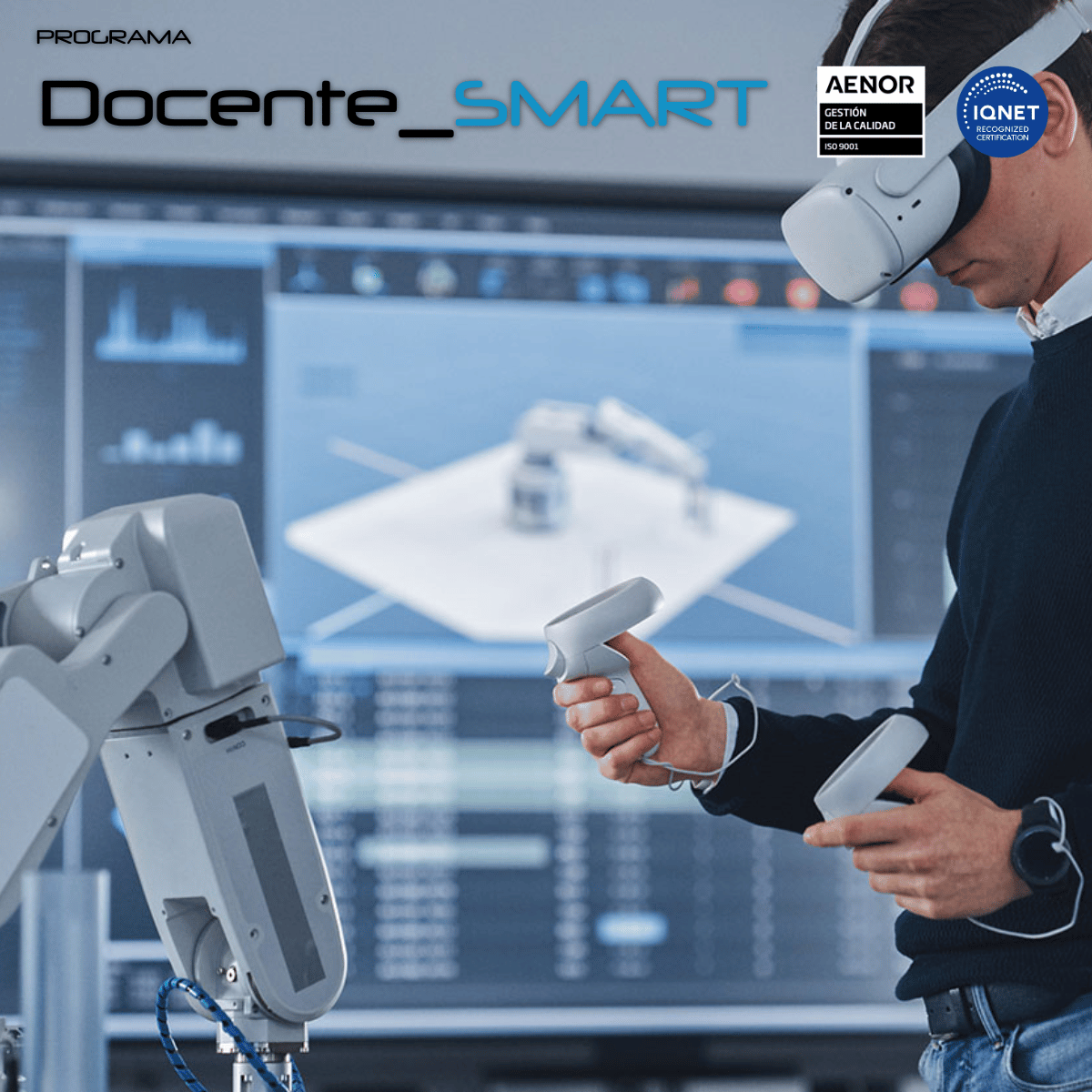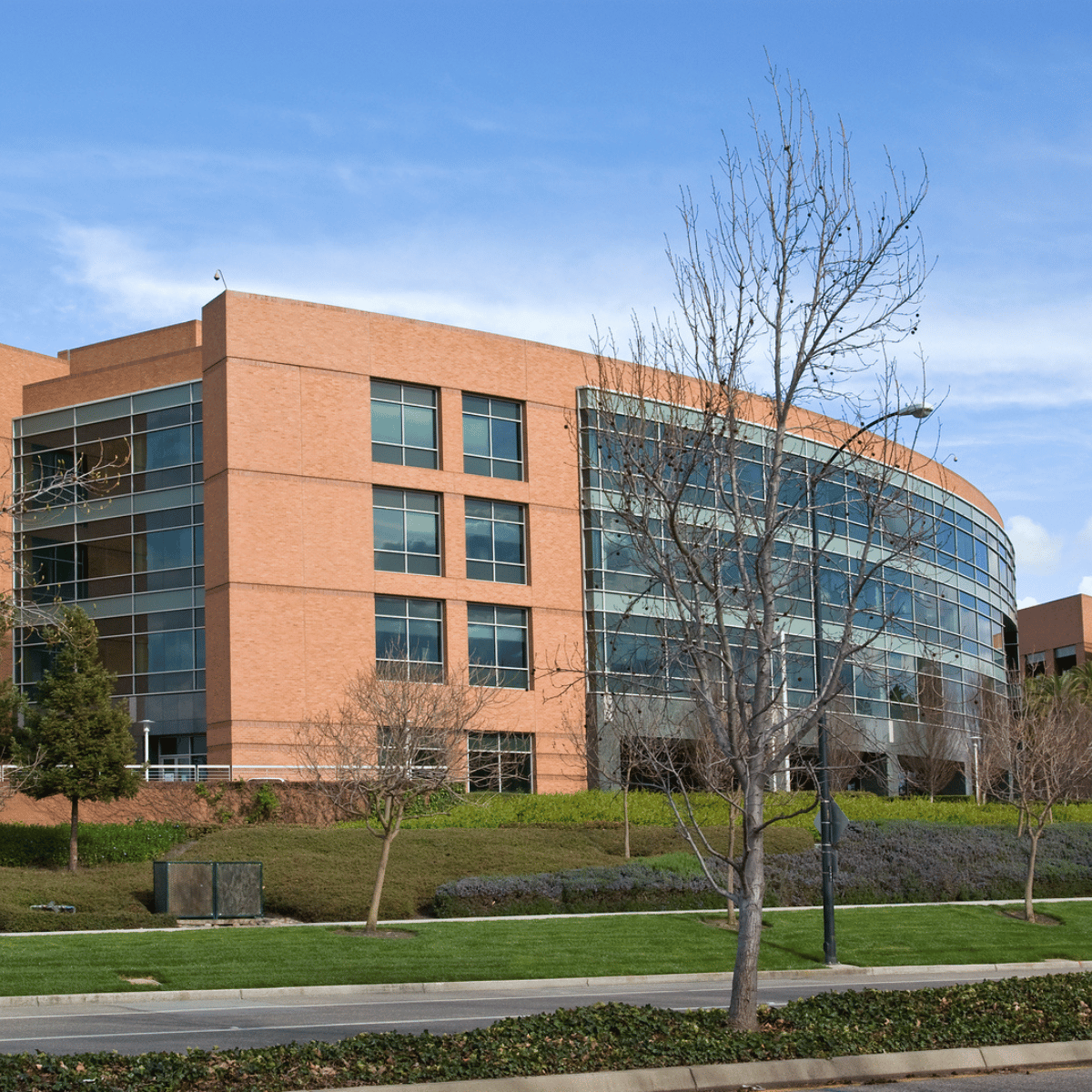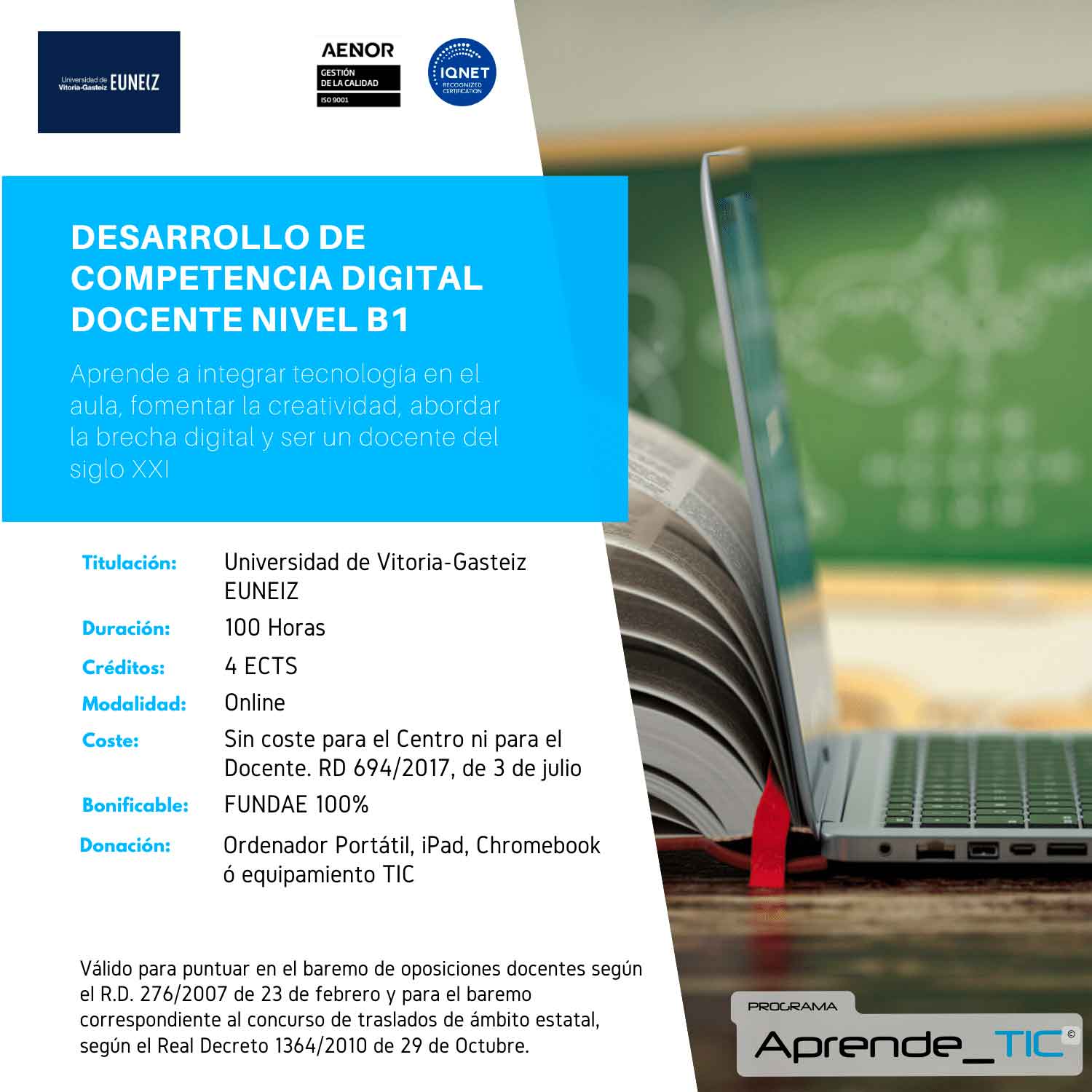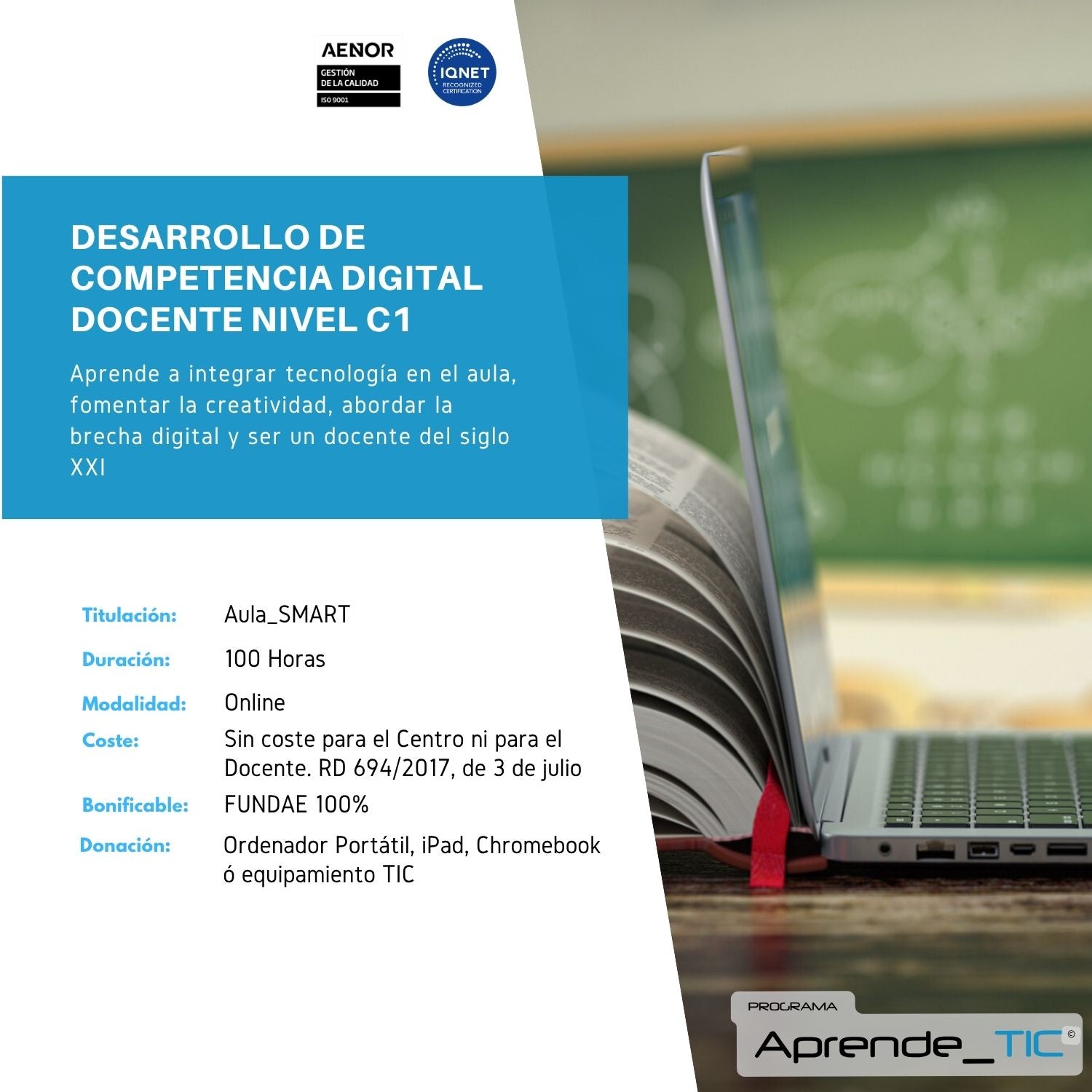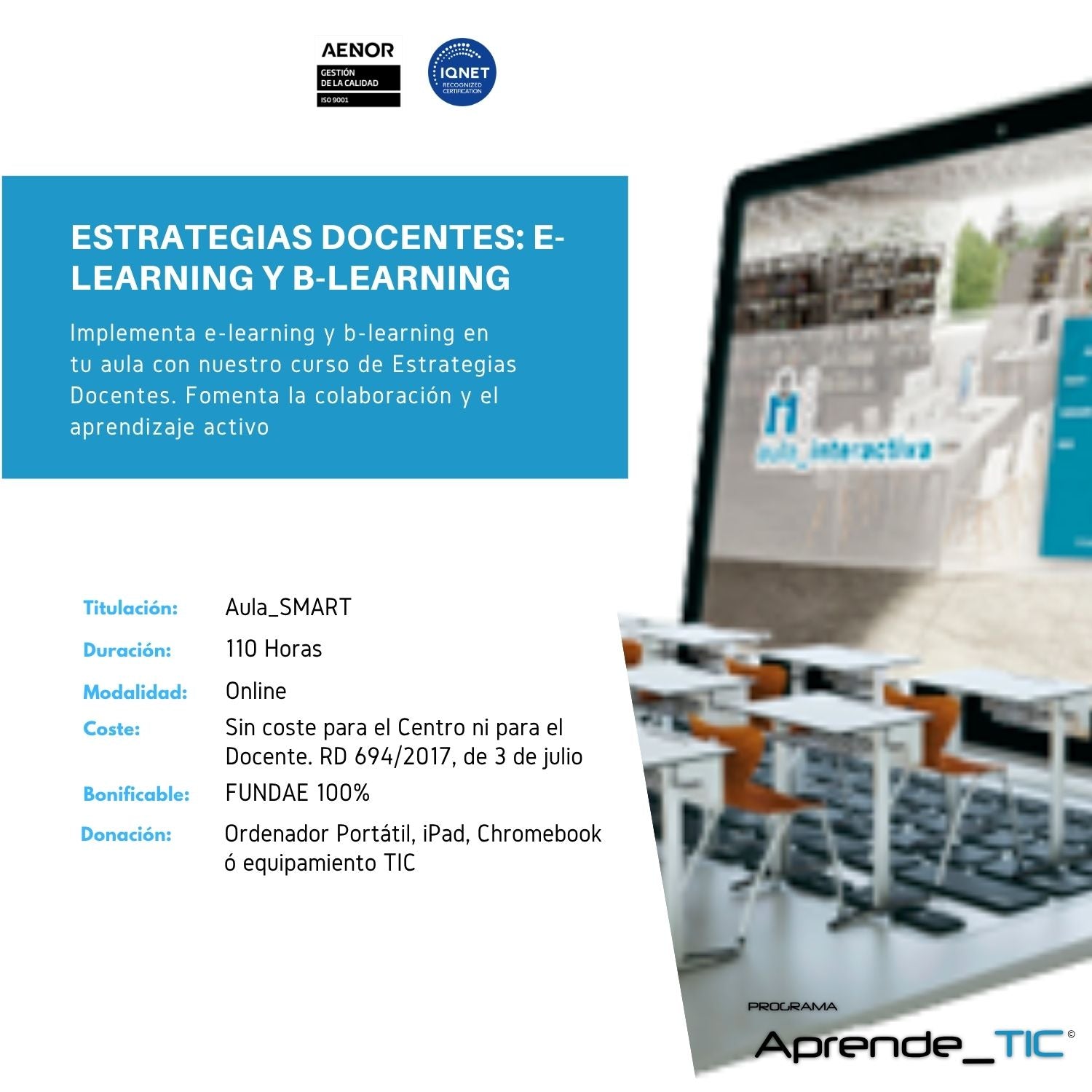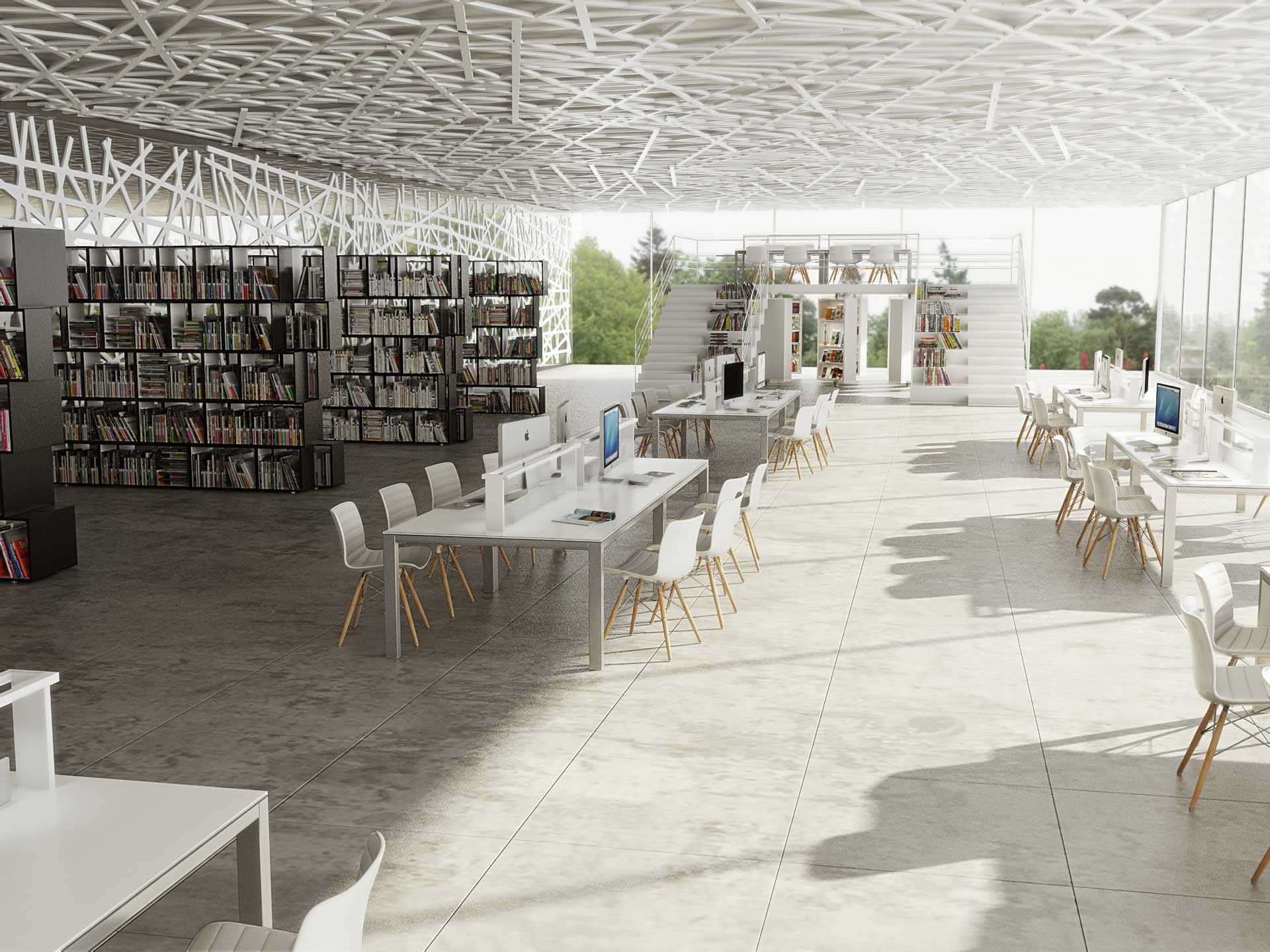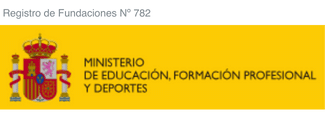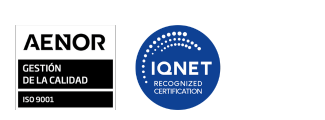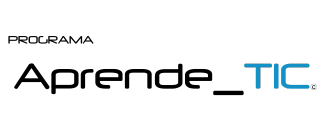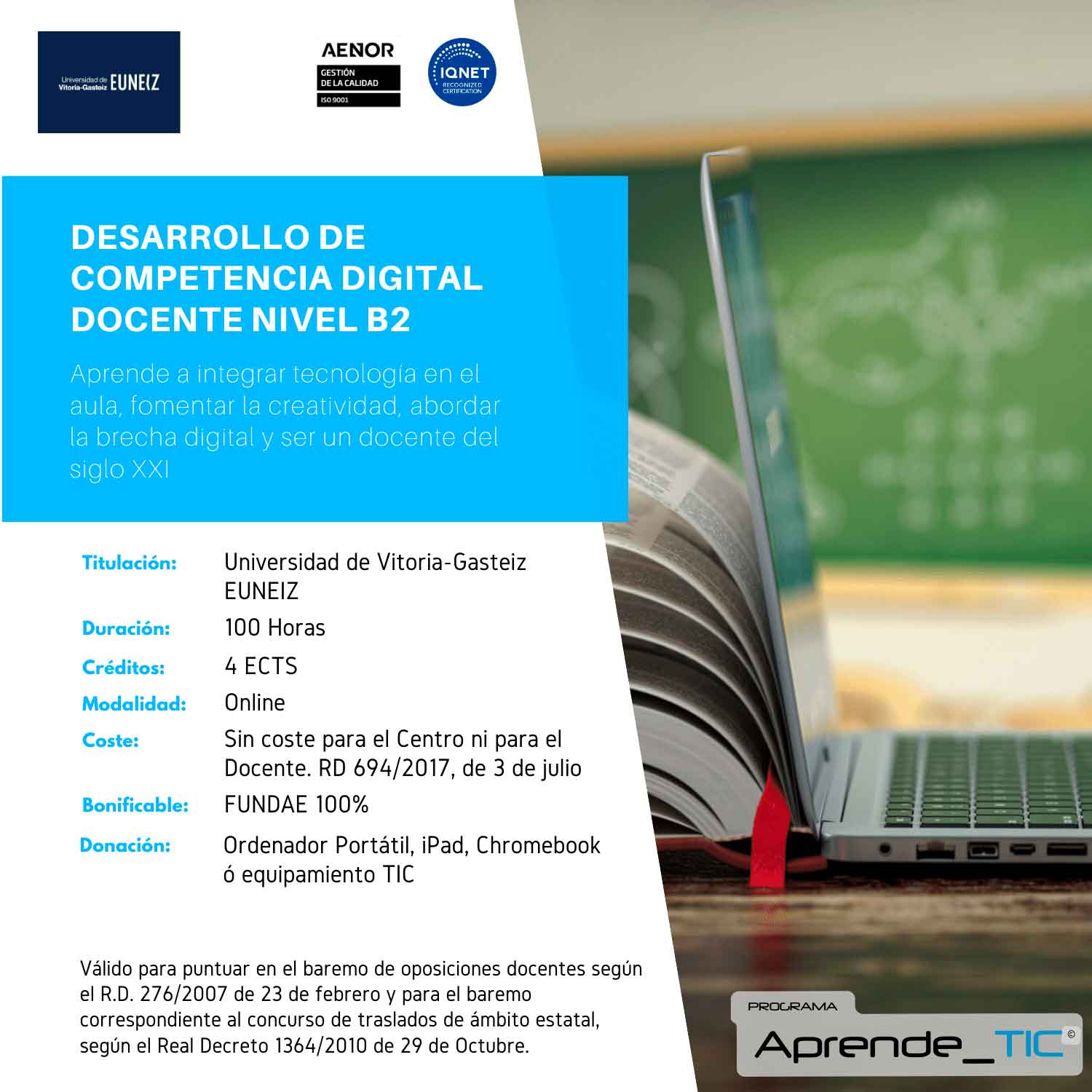
University Specialization Course in:
DEVELOPMENT OF TEACHING DIGITAL COMPETITION LEVEL B2
Advance in your teaching career with the course “Development of Teaching Digital Competition: Level B2”! Improve your technological skills, get a university degree and receive a free ICT team. Online course, 100% bonus. Sign up now and transform your teaching!
University degree obtained
Date start courses
(*) No cost to the center or the teacher according to RD 694/2017, of July 3.
(**) For students who are not going to take the course through their center

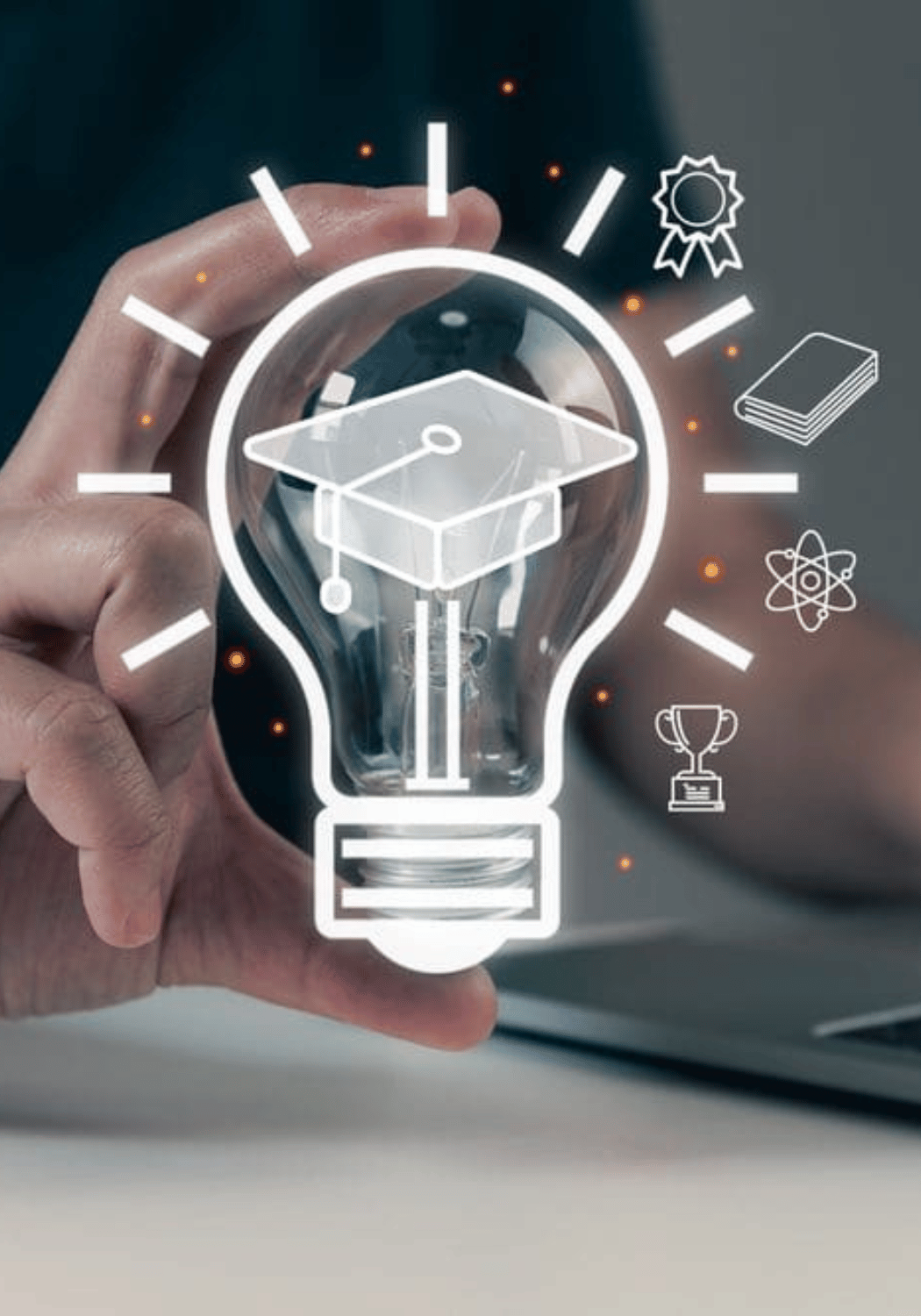
DEVELOPMENT OF TEACHING DIGITAL COMPETITION LEVEL B2
Goals

DEVELOPMENT OF TEACHING DIGITAL COMPETITION LEVEL B2
What prepares you

DEVELOPMENT OF TEACHING DIGITAL COMPETITION LEVEL B2
Who is it addressed

DEVELOPMENT OF TEACHING DIGITAL COMPETITION LEVEL B2
Methodology
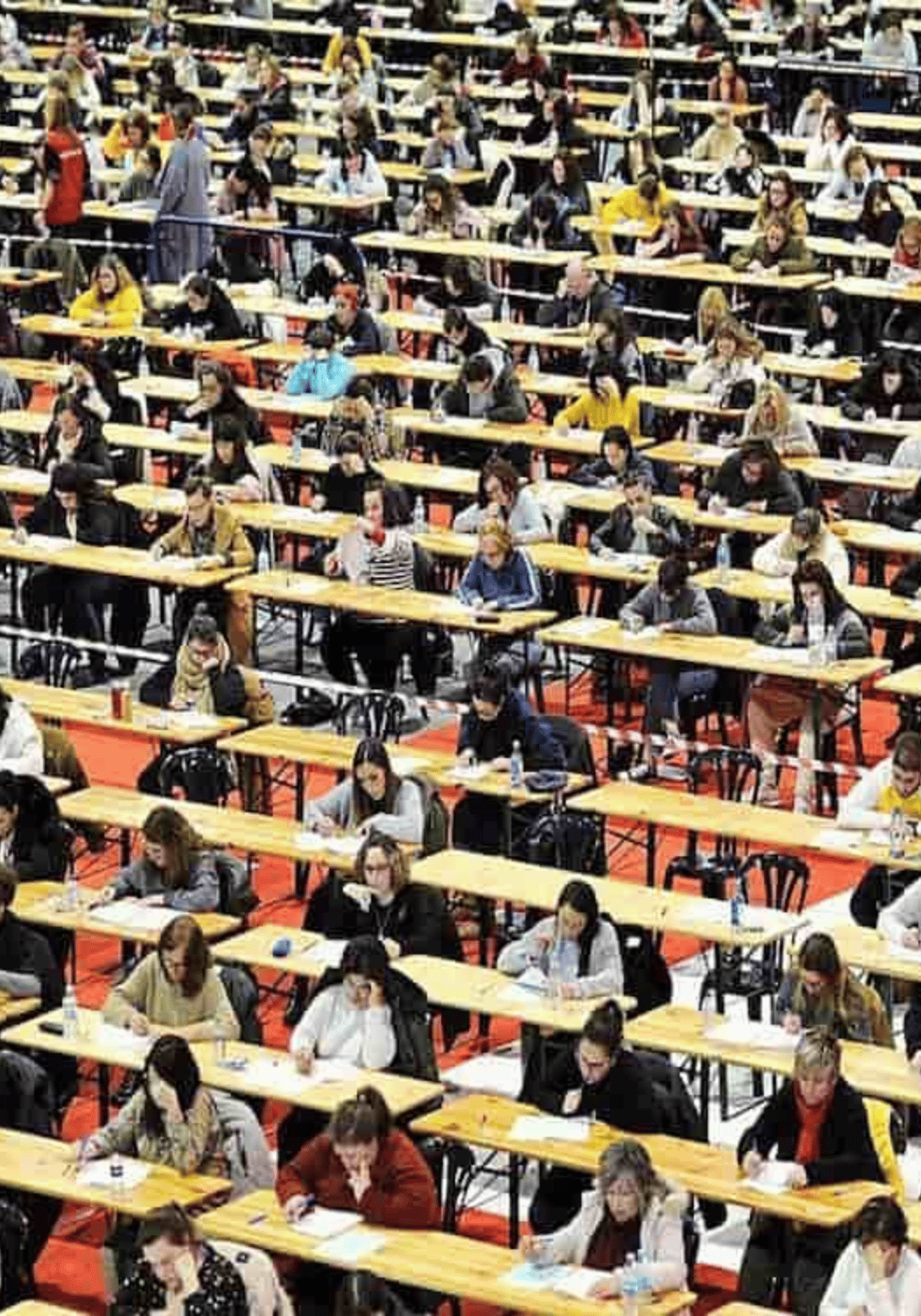
DEVELOPMENT OF TEACHING DIGITAL COMPETITION LEVEL B2
Official character
DEVELOPMENT OF TEACHING DIGITAL COMPETITION LEVEL B2
Syllabus
Download the agenda in .pdf format
Topic 1
Topic 2
Topic 3
Topic 4
Topic 5
Topic 6
Topic 7
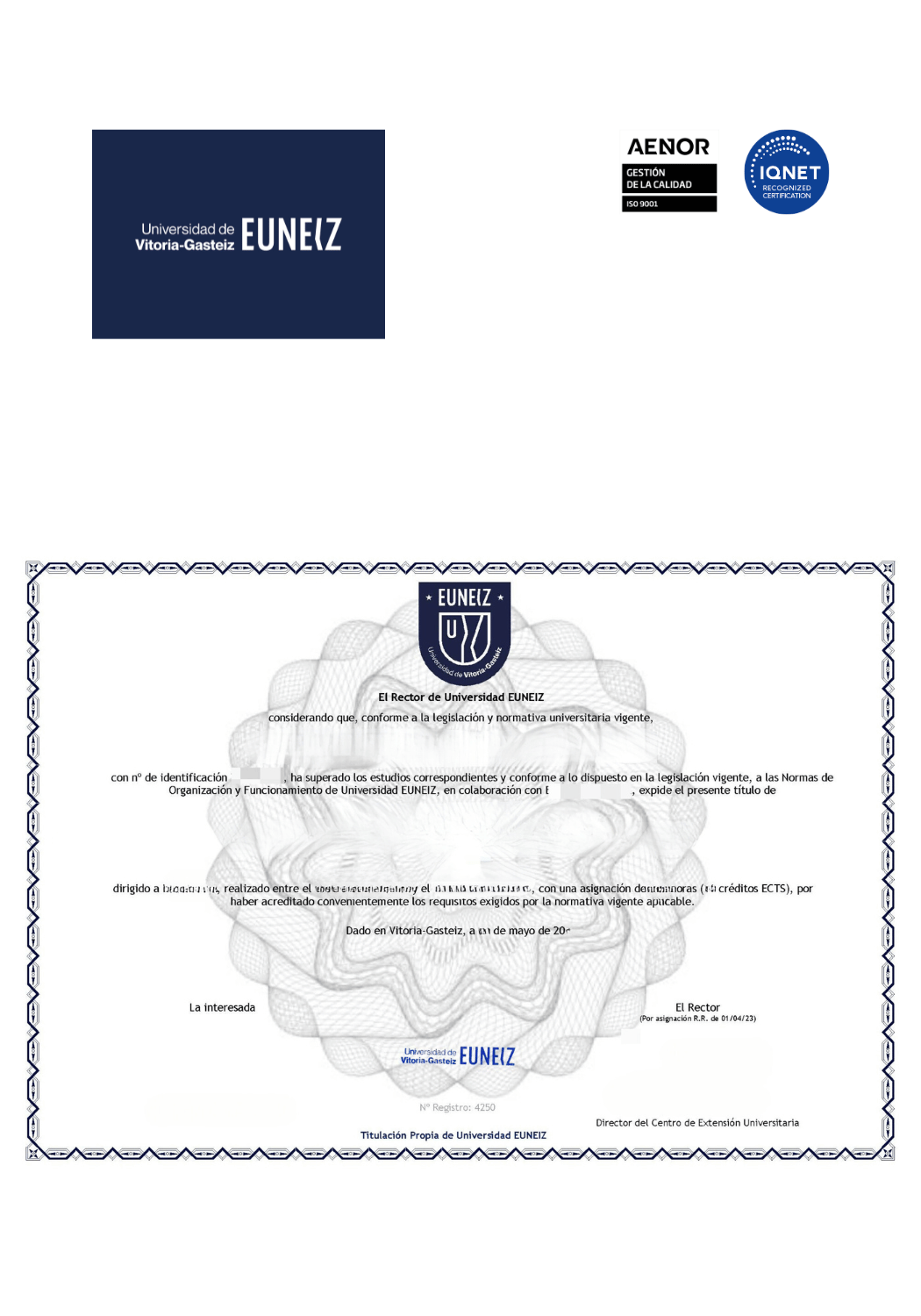
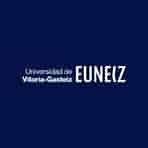
DEVELOPMENT OF TEACHING DIGITAL COMPETITION LEVEL B2
Degree
DEVELOPMENT OF TEACHING DIGITAL COMPETITION LEVEL B2
Do you have any questions about this course?
You can send us your consultation by filling out this form or in the following ways:
- Through the phone (+34) 951 411 800
- Through email
comunicacion@fundacionaulasmart.org
